Stay ahead of the curve as a political insider with deep policy analysis, daily briefings and policy-shaping tools.
Request a DemoSine Die 2024 winners and losers: 2025 budget, elections, film industry, culture warriors

Speaker Jon Burns runs down the aisle after the House adjourns Sine Die. (Credit: Jill Jordan Sieder)
Georgia lawmakers late Thursday night nailed down a budget in the final hours of their legislative session and passed a controversial omnibus election bill that critics say will burden election workers and impact the November presidential election in this key battleground state.

Measures to legalize sports betting, curtail the state film tax credit and restrict mining of the Okefenokee Swamp — all inspiring vigorous debate in each chamber on prior days— did not make the cut.
The election bill immediately drew fire from the American Civil Liberties Union of Georgia, which has threatened to sue if Gov. Brian Kemp signs the bill.
More wins for education in 2025 budget
House and Senate appropriations leaders spent the last two weeks and weekends of the session haggling over the $36.1 billion fiscal year 2025 budget, said House Appropriations Chair Matt Hatchett, R-Dublin, who noted the House made some painful cuts to balance the budget but “was able to maintain or enhance many of our priorities. And we actually agreed with some of their adds, too,” particularly in education.
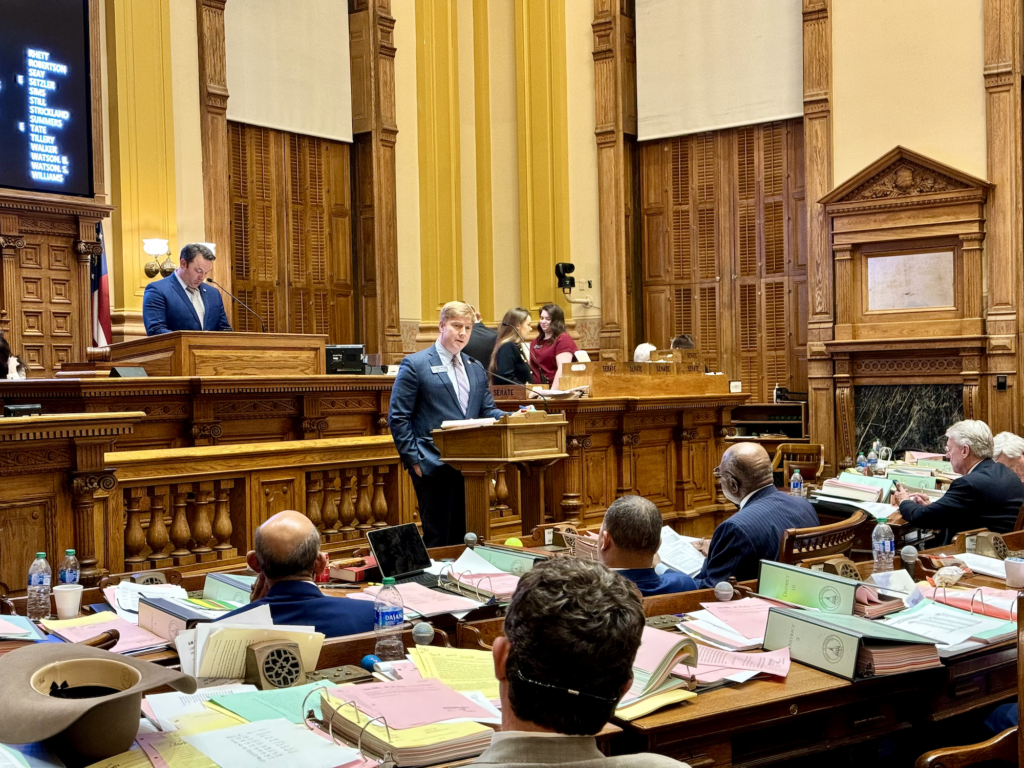
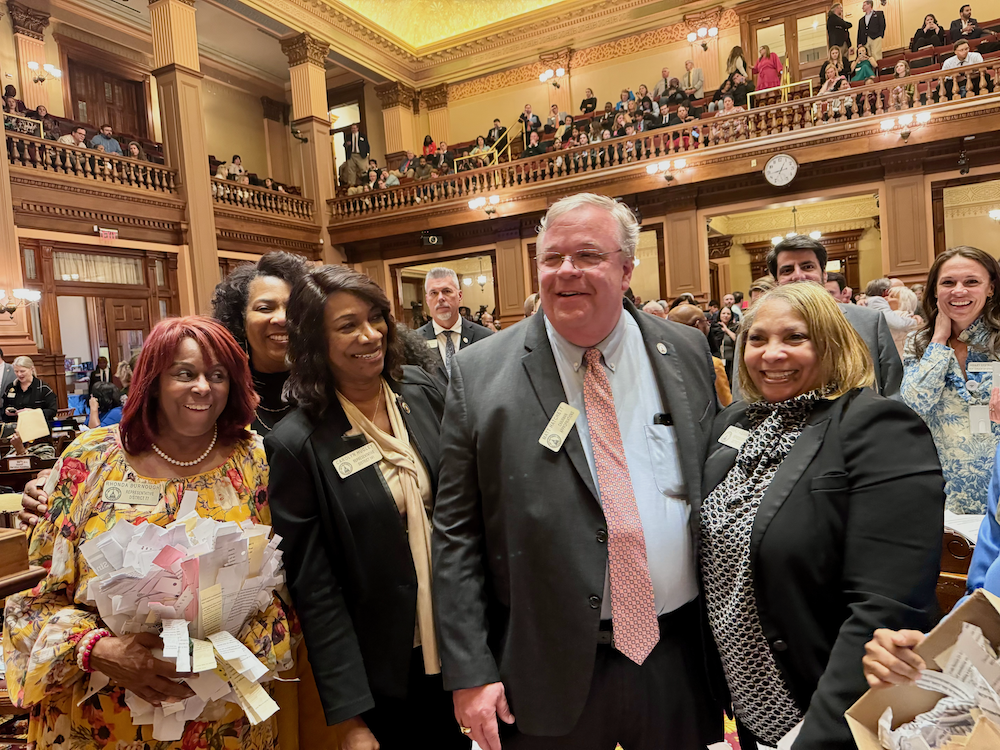
A significant change in the final budget is an infusion of new funds into pre-K education.
Hatchett said Gov. Kemp sent a letter to revise his revenue estimate to increase Georgia Lottery funds by $48.2 million to request more funds for pre-K, in line with recommendations from the House Working Group on Early Education, led by Speaker Pro Tem Jan Jones. The budget conference committee then made adjustments to pre-K programs, including salary increases for lead and pre-K teachers on par with K-12 schools, increases in start-up grants for new pre-K classrooms, new funding for student transportation and an operating increase for private pre-K providers.
“Ultimately we’ll spend $75 million more a year to reduce class sizes from 22 to 20 and pay teachers more — we weren’t paying them enough,” Jones said. “We dramatically increased transportation money to provide bus service to public schools and to provide van service with the kids at private providers, the day cares. We more than doubled the amount of money to equip a new classroom. We had not changed that amount in 30 years. It went from $8,000 to $20,000 for every additional classroom. And all of that will be yearly. … So we’ll have more classrooms open and more teachers that actually want to teach pre-K.”
The budget for K-12 schools includes $255 million for 4% cost-of-living increases (which most state employees across all agencies and departments will receive, up to $3,000) and an additional $374 million for $2,500 raises for teachers. It provides a $200 million increase in student transportation, $109 million for local school security grants and $6.1 million for regional literacy coaches. The House was able to win back $6.3 million to provide free breakfast and lunch to students from low-income families that the Senate had previously removed.
The Senate pushed to double the $4.6 million budget increase the House recommended for child care providers through the Childcare and Parent Services program, which currently offers below-market reimbursement rates that have led many workers to leave the industry. The House agreed, and the $9.2 million increase will push hourly rates for child care workers well past 50% of the market rate.
Other state employees will also get additional $3,000 raises, including law enforcement officers, corrections officers and child welfare workers.
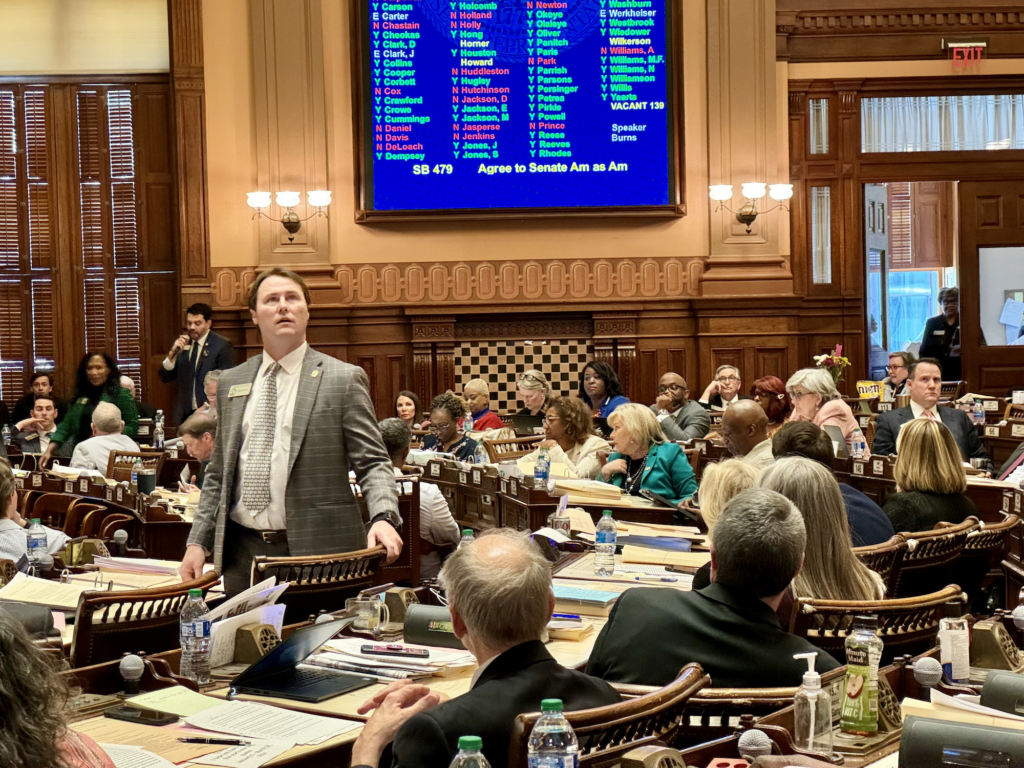
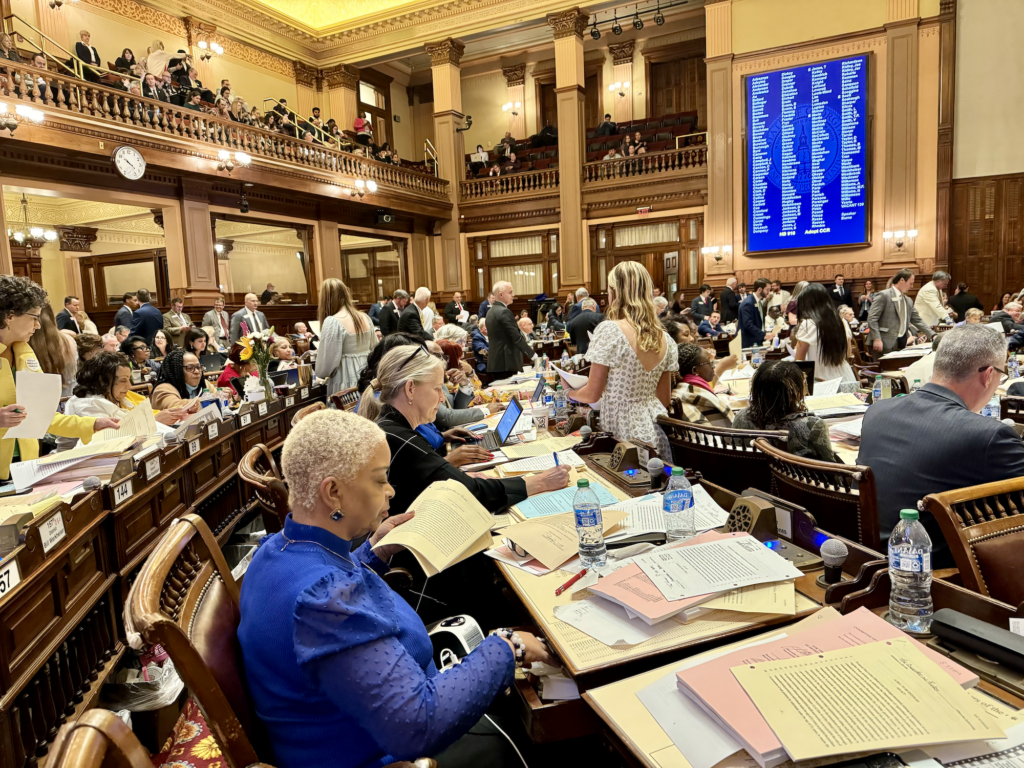
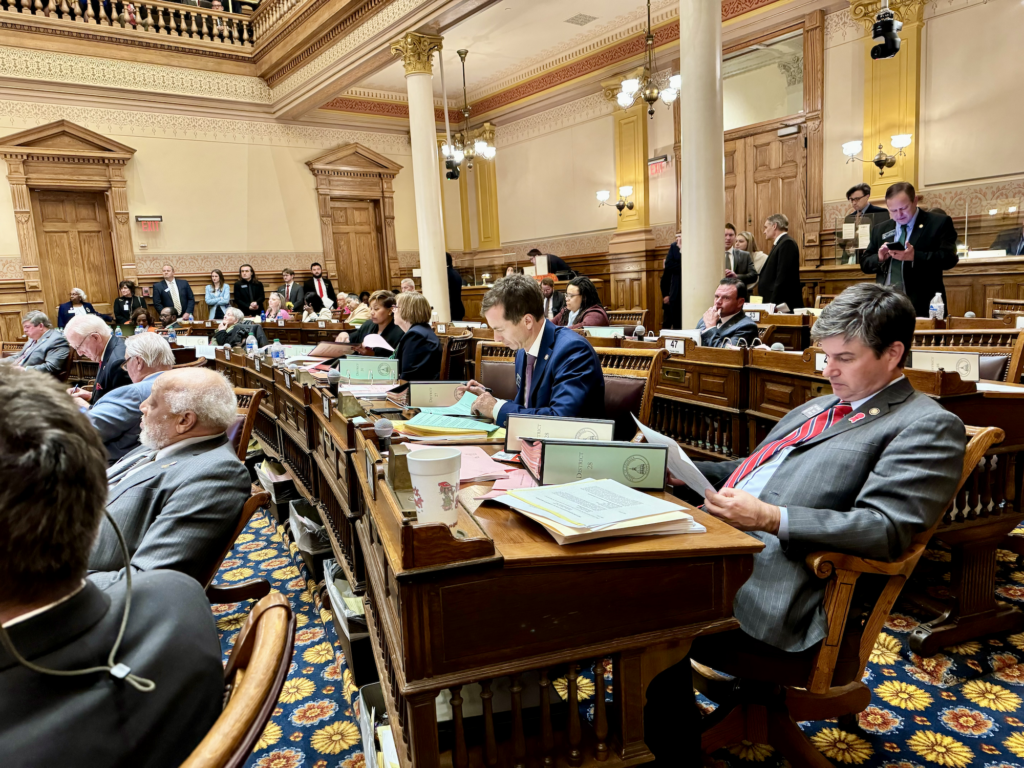
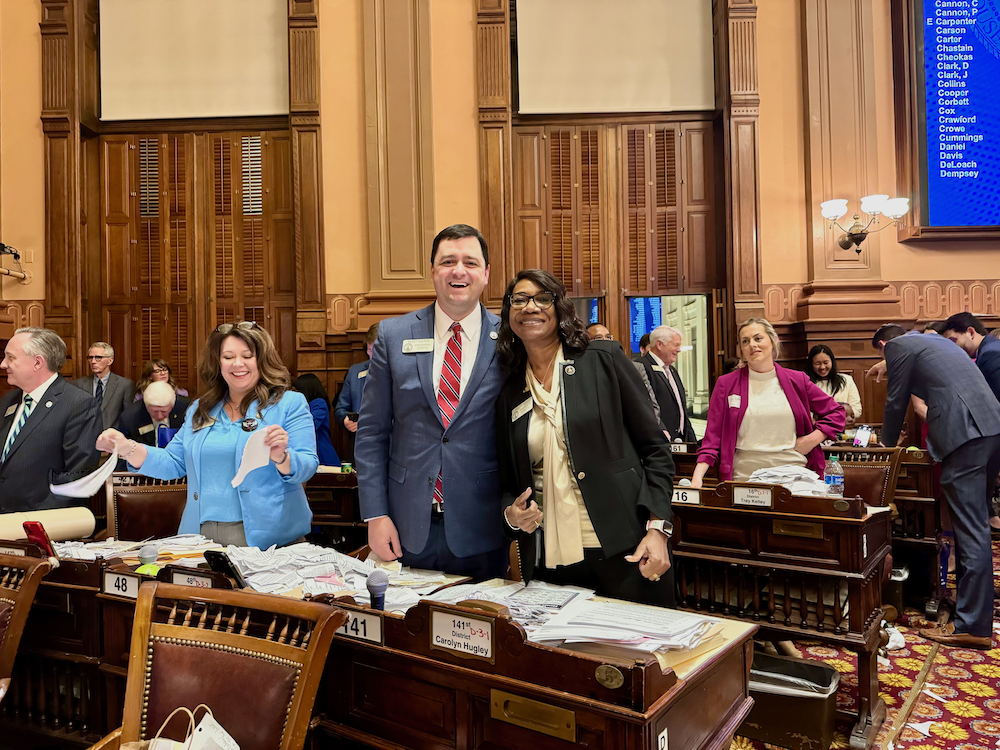

The two chambers agreed to provide hundreds of millions of dollars more for Medicaid programs, including $18.6 million to increase payments to some medical providers, such as obstetricians, optometrists, audiologists and physical therapists. Adult dental care was also fully funded with an additional $10.5 million, and independent pharmacists will see higher reimbursement rates through a new $6.2 million appropriation.
Behavioral health got a boost, with $2.5 million to expand jail-based competency programs, $26 million for housing voucher slots and $1 million to expand mental health services in schools.
In addition to $46 million to fund the $3,000 pay increases for law enforcement officers, the budget includes $10.7 million in new funding to make infrastructure and technology improvements to harden jails and prisons and to detect and prevent contraband. A backlog of cases at the Sexual Offender Risk Review Board will be addressed through a $2.5 million increase, and $19 million will go to domestic violence shelters and sexual assault centers.
Hatchett said $866 million in capital projects for schools systems, colleges, universities and state-funded agencies will be funded with cash rather than bonds, reducing future debt obligations.
Senate Appropriations Committee Chair Blake Tillery, R-Vidalia, said the governor asked budget writers to be mindful of national economic trends and inflationary pressures and to focus on one-time spends. Tillery said that led to many of the capital expenditures, such as renovations at Fort Valley State University, Albany State University, a nursing center at the Coastal College of Georgia, Technology Square at Georgia Tech and many libraries statewide.
Election bill seen as furthering voter suppression
Against Democrats’ fierce objections, lawmakers passed an omnibus election bill that sets new rules for challenging voters and who can qualify to be placed on Georgia’s presidential ballots.
Rep. Saira Draper, D-Atlanta, called Senate Bill 189 a continuation of a slate of election rules that state lawmakers have instituted over the past few years to dissuade voters and make the election process tougher. She was particularly appalled by the bill’s presidential candidate qualification provision, which will take effect in July.
“That’s terrible,” Draper, former voter protection director for the state Democratic Party, told State Affairs. “This 11th-hour inclusion is deeply cynical in a presidential year where Republicans are aware there’s multiple Democratic presidential nominees but only one Republican nominee.”
SB 189 will further overwhelm already-burdened election workers who are required to deal with voter eligibility challenges immediately upon receiving the inquiry, she said.
“Instead of doing anything to help them, we have now made their job harder with the passing of SB 189,” Draper said.
Sen. Matt Brass, R-Newnan, dismissed claims that the bill is voter suppression legislation, saying those critics have “zero credibility.”
“Those same critics said the same thing about [SB] 202 [another omnibus election bill that became Georgia law in 2021], and then we had record [voter] turnout,” Brass told State Affairs.
As for overwhelming election workers?
“Even if it does cause extra work, for us to think that that extra work is not worth a secure election is just, in my opinion, a poor way of thinking. Both sides want secure elections — there’s no question about it,” Brass said. “We want to make sure that people can trust that what they cast is the vote they’re going to receive. And anybody who doesn’t want that needs to go to a different country.”
The legislation, which now goes to Gov. Kemp for consideration, includes provisions to remove the secretary of state from the state election board, let any political party that qualifies for the presidential election in at least 20 states or territories be placed on Georgia’s presidential ballot, and make it easier for counties to fill vacancies when an elected official prematurely leaves office. The bill also calls for all advance and absentee ballots to be counted within an hour of the polls closing, changes ballot design and creates voting changes for the homeless.
“Access to the ballot is at the heart of our democracy,” Andrea Young, executive director of the ACLU of Georgia, said in a statement shortly after the bill passed. “This election ‘Frankenbill’ violates the National Voter Registration Act. We are committed to protecting Georgia voters. If the governor signs this bill, we will see him in court.”
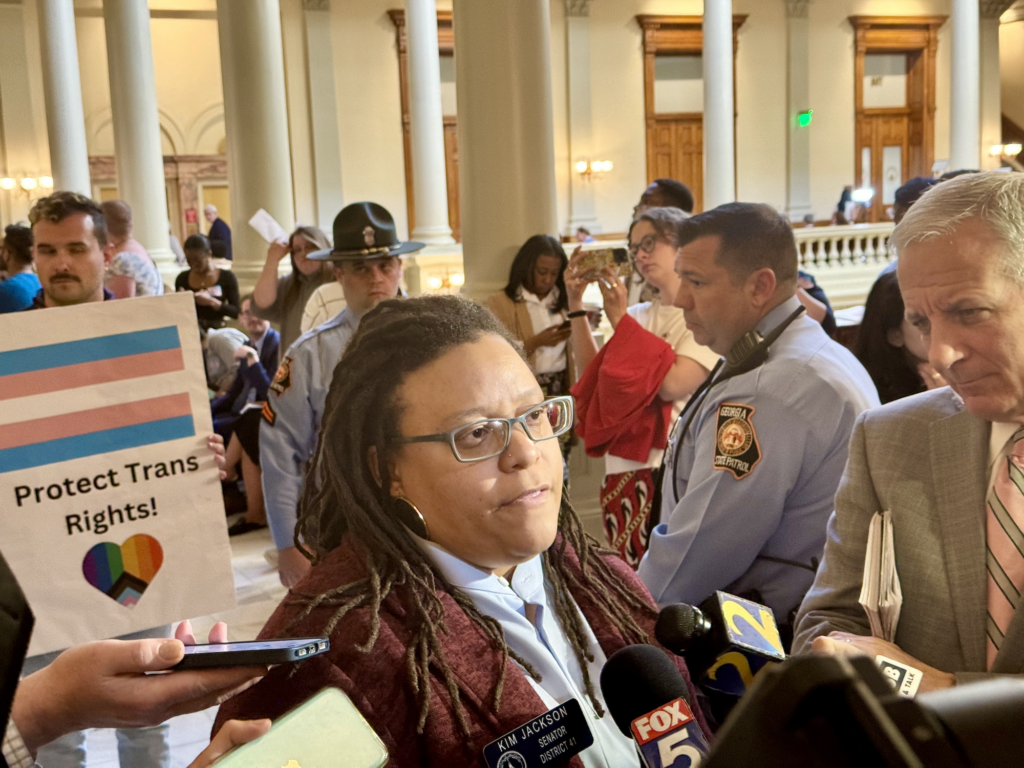
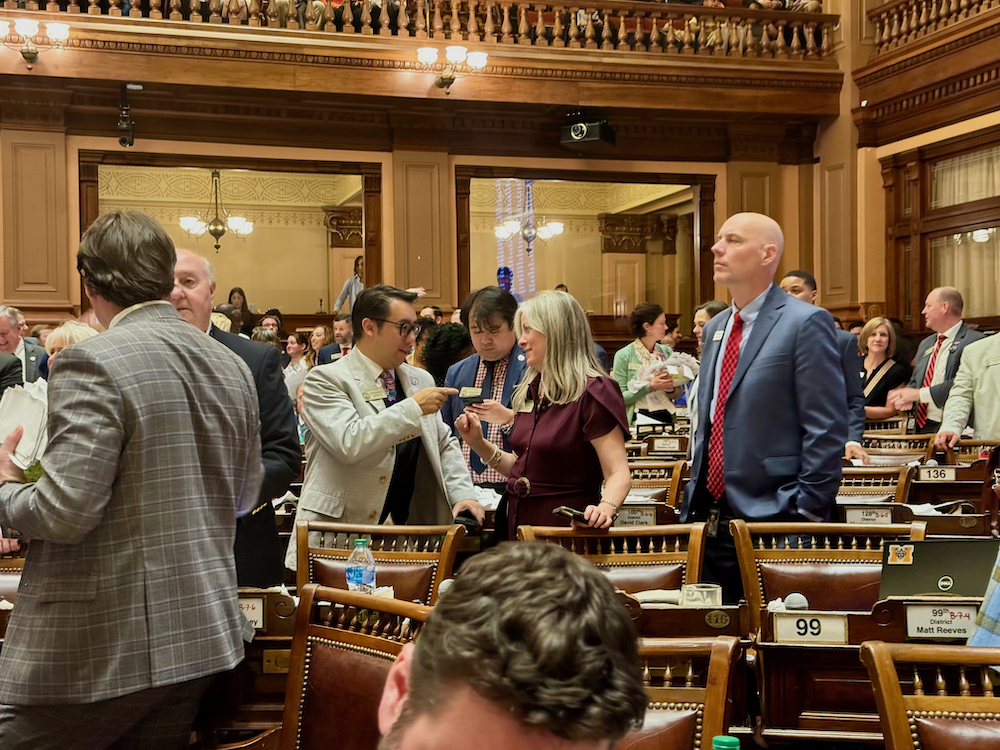
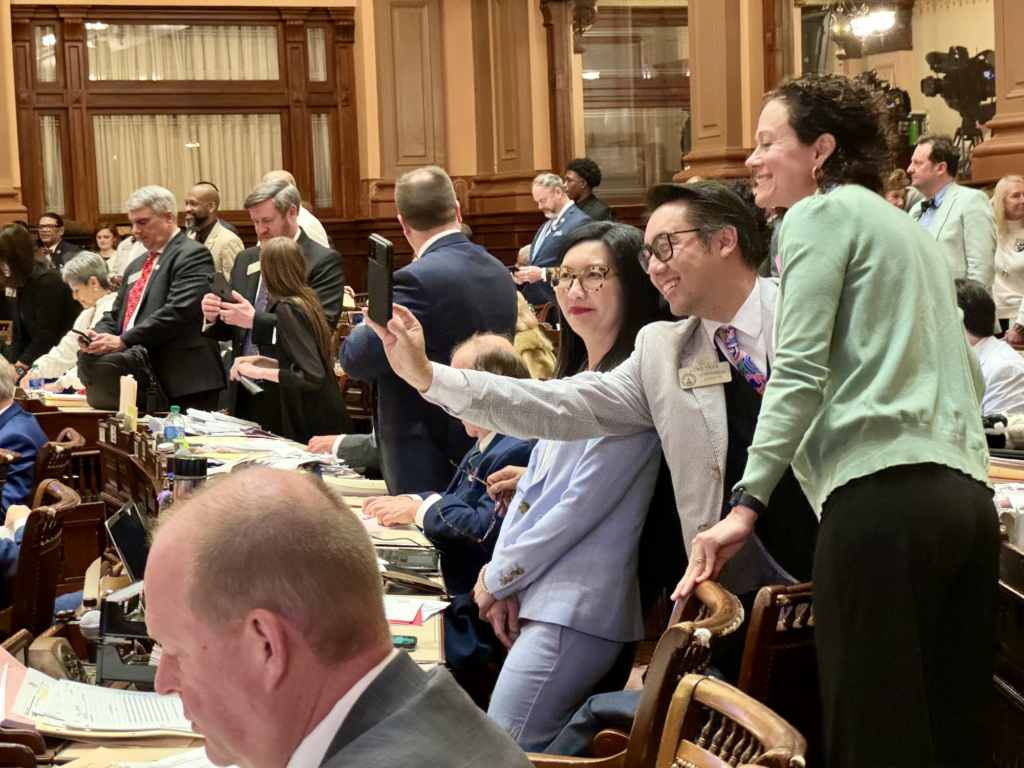
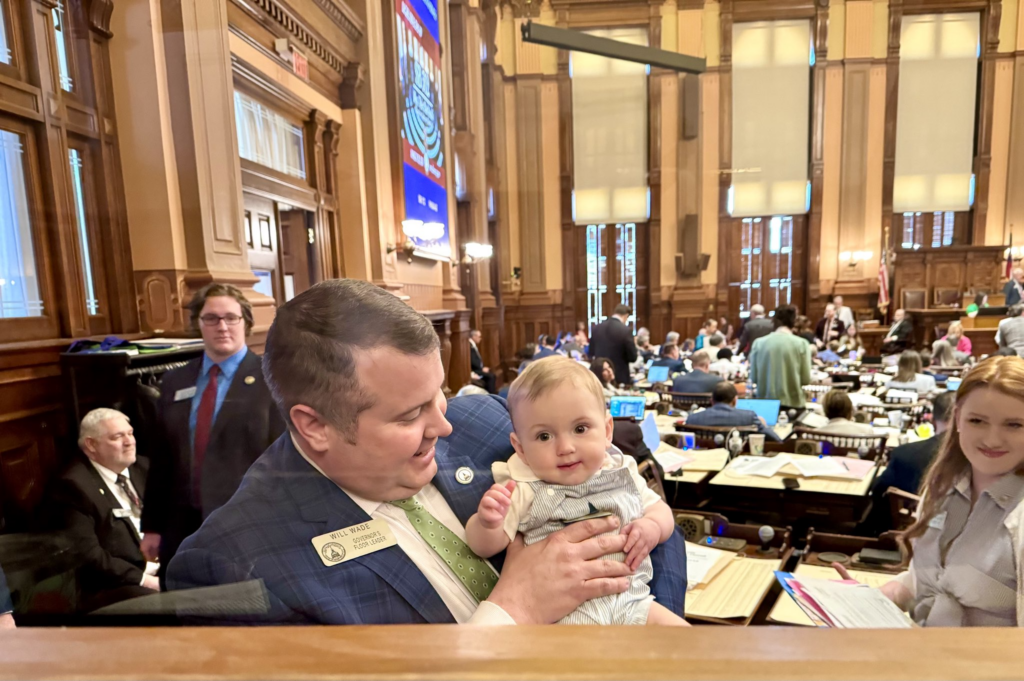
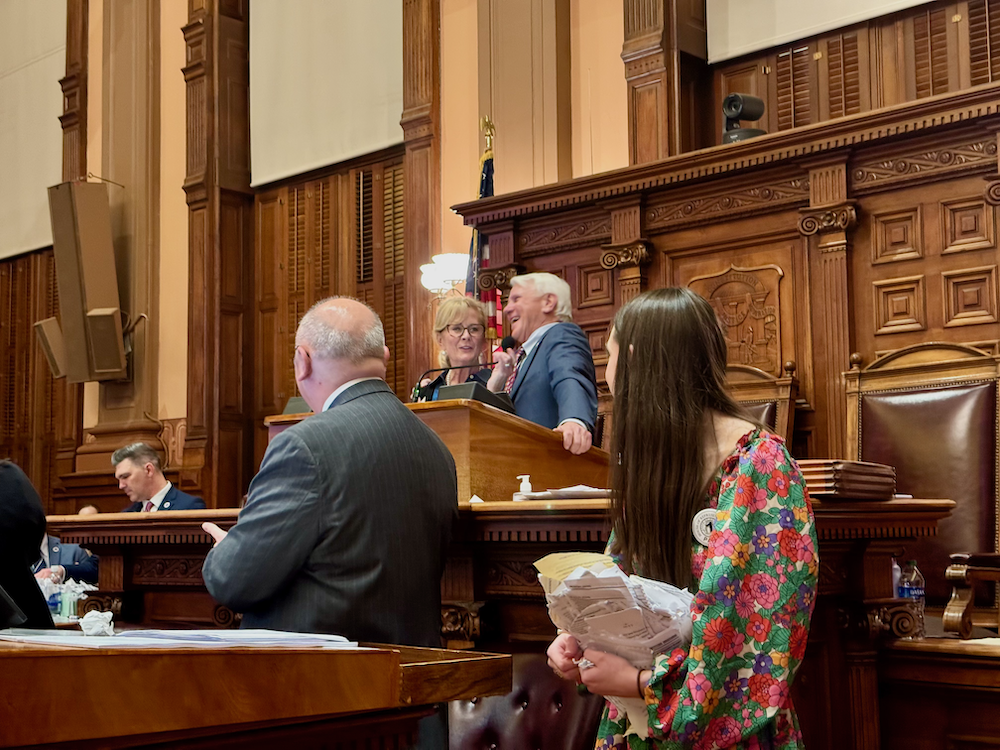
Bills that didn’t cross the finish line
While some lawmakers are still reveling — or reeling— over significant legislation that passed on Sine Die, here are some bills that raised a lot of hopes and fears but didn’t make it in the end:
Lawmakers worked for months on legislation to review and possibly roll back the state’s film tax credit, which offers over $1 billion in tax rebates to production companies each year. The Senate settled on a bill that would require movie producers to film in more Georgia locations, use more local crew and invest more in local studios to earn the credit. But on the last day of session, the film bill was rolled into Senate Bill 349, which also contains tax credit measures for interactive gaming and affordable housing.
The Senate didn’t go for last-minute changes made by the House, much to the relief of housing advocates, who said the Senate’s amended version of the bill would have drastically reduced the state low-income housing credit by 50%, making many affordable housing projects impossible to finance.
Other bills that failed:
- Despite the Senate passing an online sports betting bill, a bill that would have approved a constitutional amendment allowing for a referendum to let voters decide the issue in the November election never left the House Rules Committee on Sine Die. Another bill, SB 386, which spelled out how gambling operations would work and where the proceeds would go, also died.
- Also, the House never took up two bills — HB 1170 and HB 1104 — that critics say were harmful to transgender children by banning puberty blockers and preventing transgender students from playing on sports teams or using restrooms of the gender with which they identify.
- A bill that would have had Georgia libraries cut ties with the American Library Association — which provides various resources and services nationwide, including training for librarians — due to its controversial president, also died.
- Environmentalists and other groups pushed heavily this legislative session for stronger protections regarding the Okefenokee Swamp. But lawmakers ended the 2024 session without dealing with the issue. A bill that would have temporarily stopped the issuance of permits for new mines near the refuge never made it to the Senate floor for a vote on Thursday, the final day of the session.
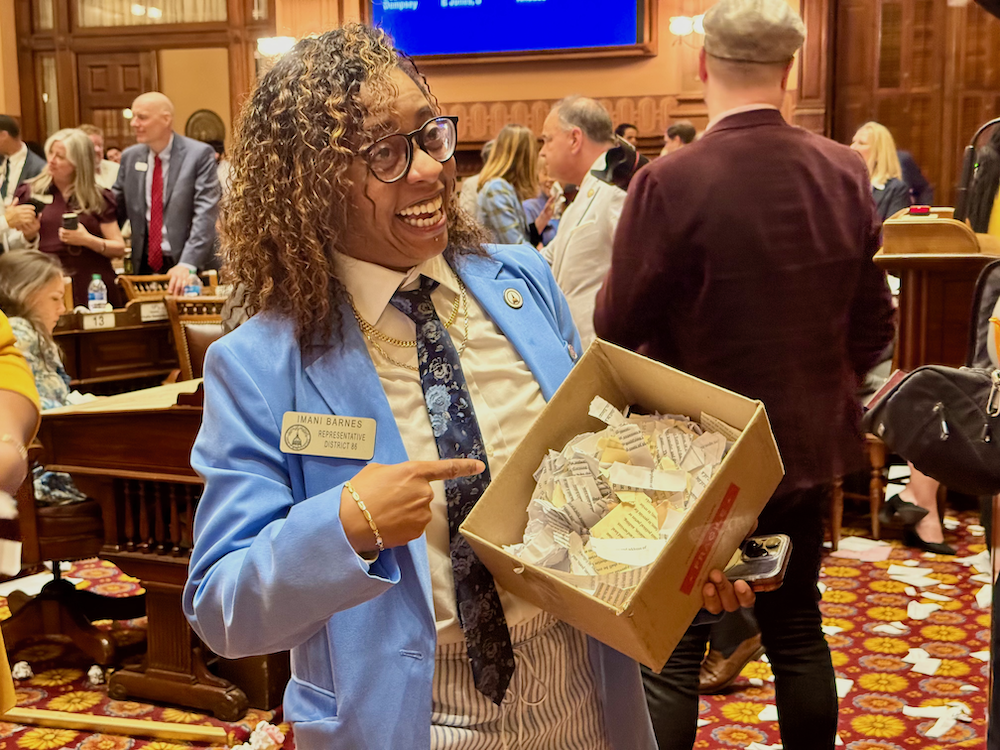
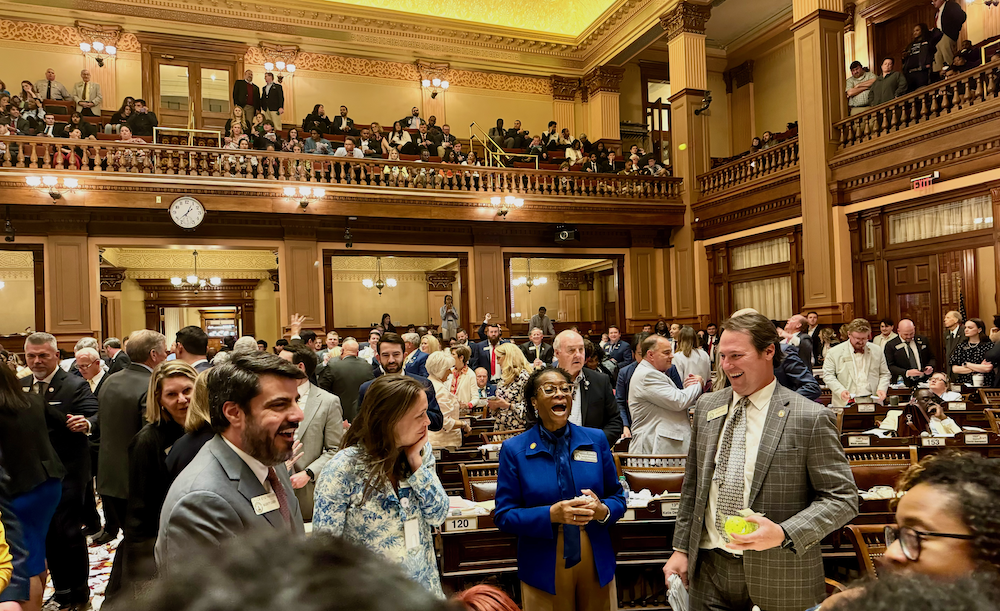


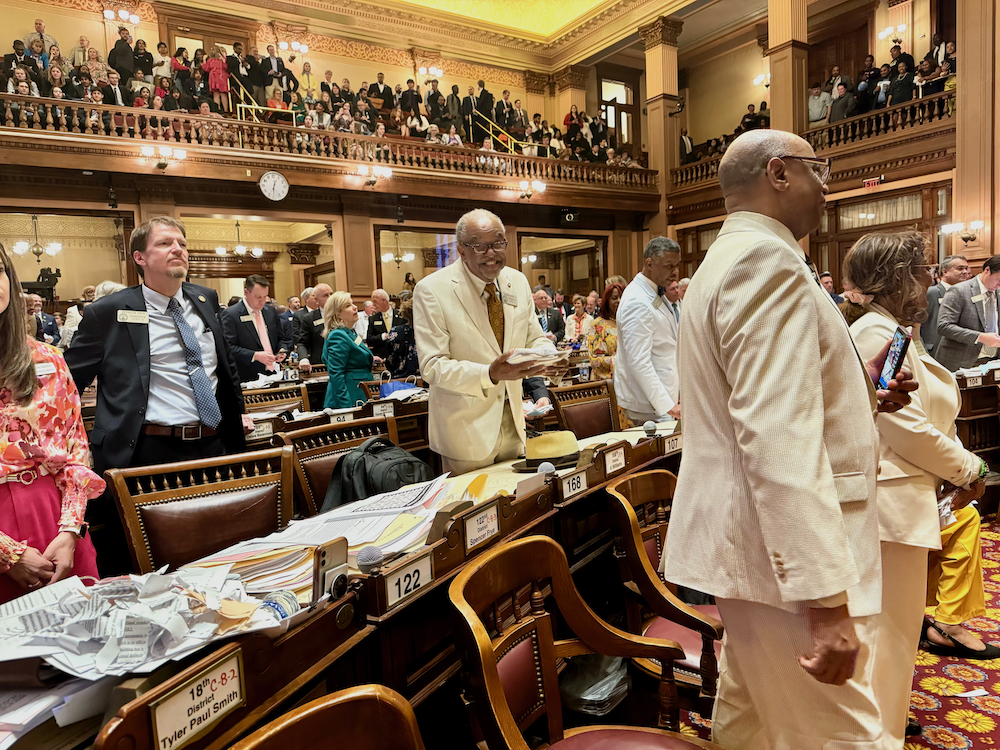
Have questions or comments? Contact Jill Jordan Sieder on X @journalistajill or at [email protected] and Tammy Joyner on X @lvjoyner or at [email protected].
And subscribe to State Affairs so you do not miss an update.
X @StateAffairsGA
Instagram@StateAffairsGA
Facebook @StateAffairsGA
LinkedIn @StateAffairs
Read these related stories:
Professionals still face licensing delays amid state’s transition to online system
The Gist Georgia’s professionals and business owners are still struggling to obtain professional licenses in a timely manner. As the Secretary of State’s Office rolls out its new Georgia Online Application Licensing System to expedite the process, the efficiency of this new process is being put to the test. What’s Happening Thursday morning at the …
Controversy over AP African American Studies class grows
Rashad Brown has been teaching Advanced Placement African American Studies at Atlanta’s Maynard Jackson High School for three years. He’ll continue to do so — even though the state’s top education official removed it from the list of state-funded course offerings for the upcoming school year. While Brown prepares to start teaching his class on …
Students, teachers, lawmakers blast decision to end AP African American history classes
ATLANTA — A coalition of lawmakers, civil rights leaders, clergy, educators and students Wednesday called on the state’s education czar to rescind his decision to drop an advanced placement African American studies class from the state’s curriculum for the upcoming school year. “This decision is the latest attack in a long-running GOP assault on Georgia’s …
Kamala Harris’ presidential bid reinvigorates Georgia Democrats
Georgia Democrats have gained new momentum heading into the November election, propelled by President Joe Biden’s decision to bow out of his reelection bid and hand the reins to Vice President Kamala Harris. The historic decision, announced Sunday, is expected to prove pivotal in the national and state political arenas and breathe new life and …



